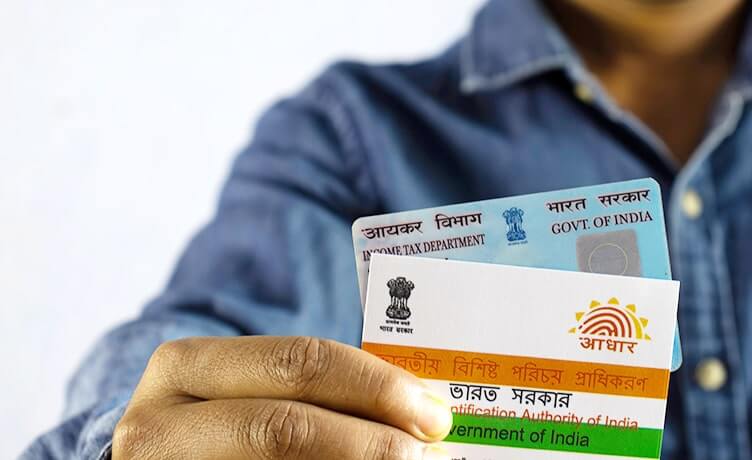Search Suggestions
- Gold Loan
- Money Transfer
- Mutual Funds

PAN Card Application Form 49AA
Organizations adopt various routes to raise funds for long-term capital requirements. Bonds and debentures are two such routes. Bonds are generally issued by large corporations, financial institutions, and government agencies for their long-term capital requirements. Both public and private sector companies issue bonds to raise funds. Debentures are generally issued by private companies for the short-term capital requirement. Debentures are also a kind of bond that is not attached to collateral. Put simply, debentures are unsecured bonds. Since debentures are riskier than bonds, the interest rate on debentures is generally higher than bonds. Treasury Bills, Treasury Bonds, and low-rated (less than AA+) Corporate Bonds are examples of debentures. Some debentures can be converted into equity shares and some cannot. Debentures that cannot be converted into shares are called NCDs. The full form of NCD is Non-Convertible Debentures.
What is a Non-Convertible Debenture?
Some debentures can be converted into equity shares at the discretion of the owner. Debentures that can be converted into shares are called Convertible Debentures (CDs) and those that cannot be converted into shares are called Non-Convertible Debentures (NCDs). NCDs have a higher interest rate than CDs as they are comparatively riskier than CDs.
Types of Non-Convertible Debentures
There are two types of NCDs:
Secured NCDs: Secured NCDs are those NCDs that are backed by the issuer/borrower company's assets. If the borrower defaults on investor payments, the investors can claim payment through the borrower’s assets.
Unsecured NCDs: NCDs that are not backed by the issuer company's assets are called unsecured NCDs. The investors cannot claim payment as the NCDs are not secured by collateral and hence are riskier than CDs.
How to Buy an NCD?
Upcoming non-convertible debentures are initially issued by the company in the exchange and later traded in the secondary market. So, you can either choose to subscribe when a company announces an upcoming non-convertible debentures or buy later in the secondary market when it is trading. You can buy NCDs both online and offline.
How to Buy an NCD Online?
Buying an NCD Directly from the Issuer: You may directly visit the issuer’s website and can apply from there by making an online payment.
Buying NCD through a Broker: If you already have a Demat account with any brokerage firm, you can buy the NCD when it starts trading in the secondary market.
How to Buy an NCD Offline?
Via Designated NCD Centers: Some of the best NCD issuers have designated centers where intermediaries such as brokers, and registrar agents are allowed to accept the Application Forms in physical form. For the offline mode, you need to submit an ASBA Form. ASBA is "Application Supported by Blocked Amount". It is an application that can be used by an investor subscribing to IPO/FPO/Rights shares and acts as an authorization to block the application money in the bank account.
Tax Implications of NCD Investments
It is important you understand the tax calculation on NCDs. Interest earned through NCDs, if held until maturity, is clubbed with your income and taxed at your marginal income tax rate. You can easily calculate the interest via an NCD Interest Calculator. If you sell your NCD scheme on the stock exchange before a year then you will have to pay short-term capital gains at income-tax rates applicable to you. If the debenture is encashed after one year but before its maturity, you will have to pay long-term capital gains tax on the effective return at applicable rates.
Conclusion
Both bonds and debentures are routes to raise capital funding from the market by government, and public and private organizations, albeit differently. An investment in NCDs should depend on your risk profile, risk appetite, and financial goals. Both of these instruments are great ways to diversify your portfolio.
Refer a Friend*
Refer a friend & get a Chance to
Win Exciting Muthoot Group Merchandise
*T&C apply

Ask an Expert
NORTH, EAST & WEST INDIA TOLL-FREE NO.:
1800 313 1212
SOUTH INDIA CALL CENTRE NO.:
99469 01212
VISIT OUR WEBSITE:
https://www.muthootsecurities.com/
apply-pan-card/
BRANCH TIMINGS:
Mon-Sat, 9:30 AM to 6 PM


Ask an Expert
NORTH, EAST & WEST INDIA TOLL-FREE NO.:
1800 313 1212
SOUTH INDIA CALL CENTRE NO.:
99469 01212
VISIT OUR WEBSITE:
www.muthootsecurities.com/Apply-Pan-Card/
BRANCH TIMINGS:
Mon-Sat, 9:30 AM to 6 PM

WHAT OUR CUSTOMERS HAVE TO SAY
With Muthoot Finance, it was so easy to apply for a PAN card online. My mother got her PAN (Permanent Account Number) card from them in a quite simple and fast process. I frankly didn’t think it would be this easy. But Muthoot Finance really helped a lot.
Divya Saxena
I had lost my PAN card and wanted to get a duplicate one. I got it from Muthoot Finance without facing a single issue. I downloaded the online PAN card application form for a duplicate card and after completing the entire process, I finally got my PAN card surprisingly quickly.
Arjan Singh
If you want to apply for a new PAN card, then look no further than Muthoot Finance. They have put in place a fast process and they help you throughout the process, making it so easy.
M. Rajaraman
I downloaded the application form online for a new PAN card. I got my PAN card without any hassles, all thanks to Muthoot Finance. Their representative was kind enough to guide me through the entire process of online PAN card application. Thank you, Muthoot Finance, for such a satisfactory service!
Sreejan Sinha
If you are searching for PAN (Permanent Account Number) card services, I strongly recommend Muthoot Finance. I got my PAN card from them in a very simple process. One can also apply for an e-pan card with them.
Rachit Khandelwal
Life Transforming Stories
-

Meet Alok Saha from Kolkata expands his Clothing Business
-

Sakina Bano from Delhi establishes her salon business
Services We Provide
- South +91 99469 01212
- North 1800 313 1212




